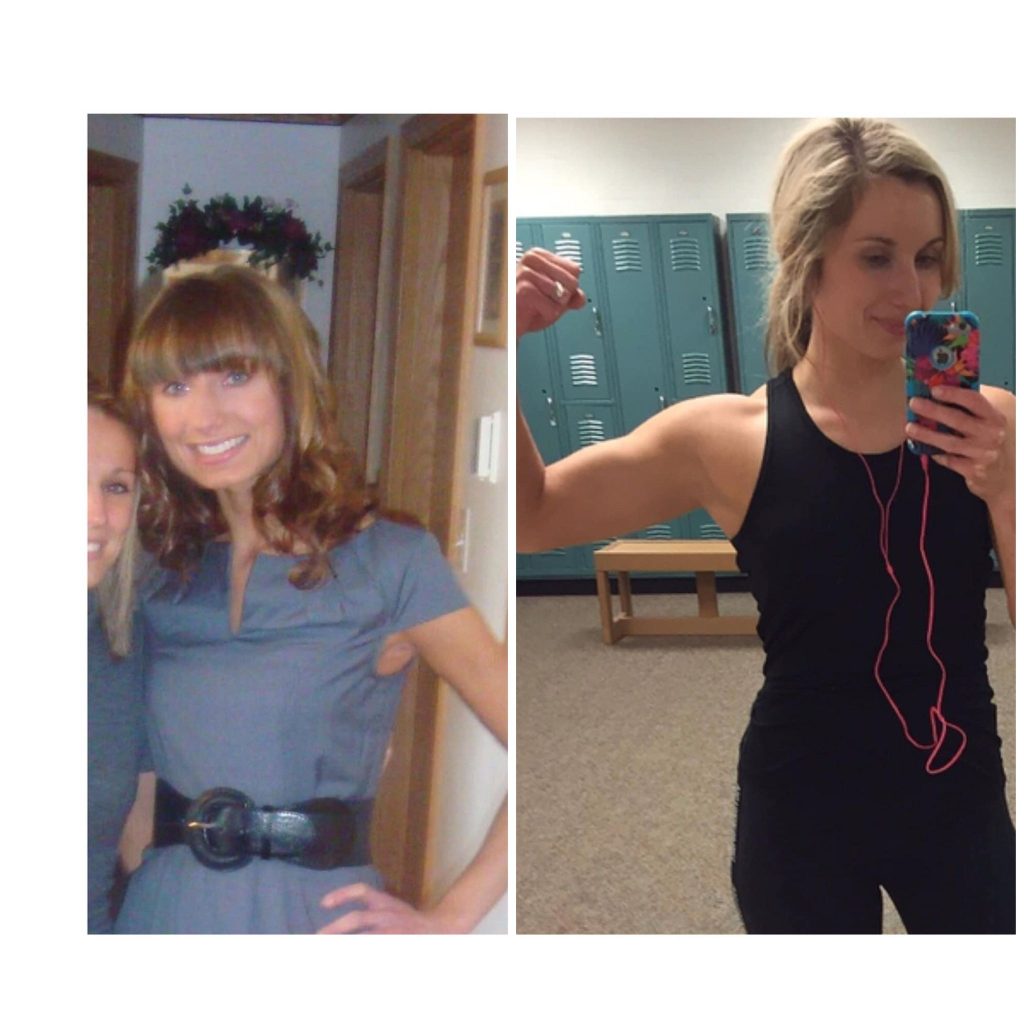 National Eating Disorders Awareness Week is the last week of February. This week, many statistics, facts, and stories of both struggle and recovery will be shared. While I certainly can’t cover all of those things in one blog post (and even if I tried, I couldn’t and wouldn’t do them all justice), what I can do is share one voice — my own — in hopes that it might shed light on the often invisible faces behind eating disorders (EDs). Maybe, just maybe, it will reach someone who is in the midst of struggles with food and weight and encourage them to seek help.
National Eating Disorders Awareness Week is the last week of February. This week, many statistics, facts, and stories of both struggle and recovery will be shared. While I certainly can’t cover all of those things in one blog post (and even if I tried, I couldn’t and wouldn’t do them all justice), what I can do is share one voice — my own — in hopes that it might shed light on the often invisible faces behind eating disorders (EDs). Maybe, just maybe, it will reach someone who is in the midst of struggles with food and weight and encourage them to seek help.
Disclaimer: This is just my story alone, in a very abbreviated version. No eating disorder story is the same, and not every person makes a full recovery like I did.
It began with joining a school sports team.
Over the middle school loud speaker, I heard an announcement for the school cross-country team. They were looking for more team members, and all you had to do was show up, willing to run.
I thought, “Maybe that’s something I can do.” Unlike many of my peers, I never had participated in youth sports. My parents never made it a “thing” like so many parents do. I was too intimidated to try out for sports like volleyball or soccer because most of the girls at try-outs were already experienced and skilled. Me? I had no athletic training, and while naturally strong, I was uncoordinated. But running? I knew I could do that.
Over the next few years, through a lot of determination and perseverence (cliche but true), I became a top distance runner in my local area. I wasn’t naturally gifted at it, nor did I have that “marathon runner’s body type,” but I worked hard, and to this day, I love a physical challenge. I won “female athlete of the year,” among many races and medals.
And then, before I had time to realize it, my love of the sport slowly slipped into hatred for my apparently too-muscular quads.
During my time as a middle school and high school athlete, the comments trickled in. And oh, it still makes me sad. As an active, healthy adult with two children, I think about these comments with utter disgust. They were subtle comments, but they were hurtful, nonetheless. These comments came from a teacher, the parent of a fellow runner, peers . . . and even a family member. I remember them all — the exact way they were said and by whom. I can put myself back in those times and places because they left scars on me. And despite so many other, positive comments on my athleticism and performance, these were the only ones I held onto.
“But you’re built for volleyball/soccer. You’re not one of those skinny runner girls.”
“But you’re . . . so much stronger (enunciation was used here) than the other girls. Moving out of distance is probably best.” (when I switched to middle distance and sprinting.)
“You run distance?! Aren’t those girls super thin? I just assumed you were a sprinter or a shot putter.” (aka code for “you’re thicker than the skinny girls who run.”)
“You have big thighs.”
And to think, I just liked running and was good at it.
You know, if I’m being honest, it wasn’t just the comments. They were simply the catalyst. Some people deal with comments like these and never develop an eating disorder (ED). But many of us — especially those of us predisposed to EDs through anxiety, perfectionism, and neurotype — succumb to eating disorders as a way to drown our feelings and feel back in control.
When the downward spiral began
I was 14 when it started. For the first five years of my ED, I was just bulimic (I say “just” because that’s before I was both bulimic and anorexic). I hid it from my parents. I binged until my body was ready to explode, and then purged. I purged throughout the day and hid it in bags, which I would later dispose of without my parents knowing. I bought laxatives and started abusing those, too. (The details of this are horrible because they destroyed my body for at least a year.) I never really lost a lot of weight (bulimics aren’t often easy to identify because their weight is usually normal), but I was successful in both hating myself more and numbing all the pain I felt from being “less than perfect,” while simultaneously struggling with severe anxiety and depression.
By 19, I took it further. I began to over-exercise. The thought of not running one day would send me into a panic, even if injured or sick. I restricted my calories to 1000-1200 a day (while running miles each day) and purged on occasion. It was the hardest, most soul-sucking sense of CONTROL I have ever felt. As long as I could continuously earn straight As in college, count every single calorie, monitor every single calorie burned, and weigh no more than 100-105 lbs on my naturally lean 5’5” frame, I was okay. Right? Right.
I lost my period for two years. I was weak. I cried once thinking that I had destroyed my body so much that I’d never be able to have children. I ended up buying some clothes from the little girls’ section. My shoulders made people uncomfortable.
Now, the comments changed.
“You were looking good, but now you took it too far.”
“You are so bony.”
“Your arms look like toothpicks.”
“Is that all you’re eating? I’m worried about you.”
“That’s not your lunch, is it?”
“You should talk to someone.”
Recovery
This blog post is an extremely condensed version of my painful battle with eating disorders, but I wanted to share this: I couldn’t stop it on my own, but I was lucky to be self-aware and motivated to seek help. I put myself in the free therapy offered at my university. At 22, I entered the first healthy relationship of my life — with my now-husband, who loved me through gaining 30 pounds back during our early relationship.
Through A LOT of work, therapy, and my spouse, I was able to slowly recover. It wasn’t a sudden change — it took time. But I got there, improving each year, becoming less shackled by thoughts of food and calories. Unlike many, I was lucky to never be hospitalized. By the age of 24, ten years later, I no longer had what I would consider an eating disorder.
As the years have gone on, my relationship with food and weight has gotten better and better — and, shockingly, probably rivals that of many who’ve never had an ED. I think it’s because my mind is healthy, first and foremost. I’m emotionally well and strong. I don’t count calories (like many recovering alcoholics who can’t even have a sip of alcohol, I think counting calories would be a slippery slope for me), but I choose healthy foods that I know are good for my body. I choose exercises that make me feel like a badass and improve my unique composition. (Weight training is AMAZING for women in recovery from EDs, in my humble opinion.) I weigh myself one or two times a year (at the doctor), and I don’t care that much about the number because my clothes fit. I don’t know how I ever sustained on so few calories because now that would be misery to me. I enjoy food; I don’t fear it.

Again, this is just my story, and only part of it. But if there are things I want you to take away from this, it’s this:
- There isn’t always a “look.” Someone with an eating disorder isn’t always thin, or even unhealthy looking. It’s easier to hide binge-eating episodes and vomiting than you might assume.
- Pay attention to the warning signs in your kids and your loved ones. Eating disorders are a mental illness. No one would willingly choose to have their entire life dictated by calories, and to literally hate food and themselves. If you’re a parent, think seriously about how you talk about your body, the bodies of others, and food. You can learn more about eating disorder warning signs here.
- And lastly, be kind. Please. Teach your kids to be kind. THINK about how your words affect others. Don’t comment on weight or body type . . . ever. Never, ever. It’s NEVER appropriate.











